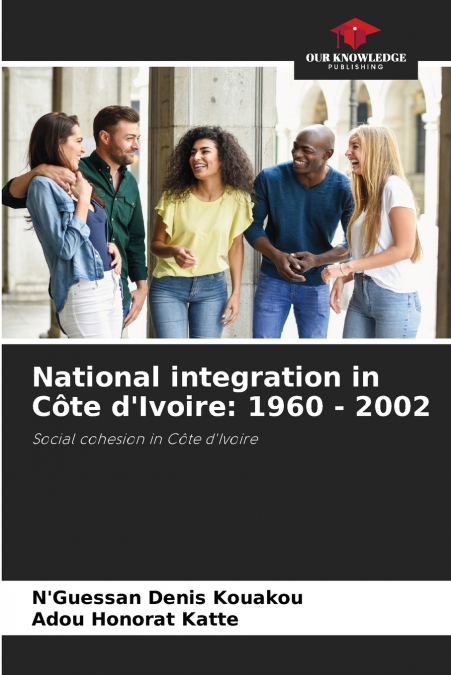
Adou Honorat Katte / NŌĆÖGuessan Denis Kouakou
 Librer├Ła Perell├│ (Valencia)
Librer├Ła Perell├│ (Valencia)
 Librer├Ła Aciertas (Toledo)
Librer├Ła Aciertas (Toledo)
 El AlmaZen del Alquimista (Sevilla)
El AlmaZen del Alquimista (Sevilla)
 Librer├Ła El├Łas (Asturias)
Librer├Ła El├Łas (Asturias)
 Librer├Ła Kolima (Madrid)
Librer├Ła Kolima (Madrid)
 Donde los libros
Donde los libros
 Librer├Ła Proteo (M├Īlaga)
Librer├Ła Proteo (M├Īlaga)
After sixty years of French colonial rule (1893-1960), C├┤te dŌĆÖIvoire gained its independence on 7 August 1960, with a heterogeneous population made up of some sixty different peoples. Nothing predisposed these peoples to a 'common destiny' before colonisation. During the first three decades of independence, the policy of national integration adopted by F├®lix Houphou├½t-Boigny and the traditions of these peoples fostered relative political and social stability, conducive to national unity. However, since the death of Houphou├½t-Boigny, C├┤te dŌĆÖIvoire has plunged into an unprecedented social fracture linked mainly to political and inter-ethnic conflicts and the coup dŌĆÖ├®tat of 1999. How did this country, long recognised as a political, economic and social model in an Africa in crisis, become a veritable social fracture after the death of President F├®lix Houphou├½t-Boigny? This book invites Ivorians, then Africans and other peoples of the world, to understand the necessity of the issue of national integration in post-colonial African states, in general, and in C├┤te dŌĆÖIvoire, in particular.